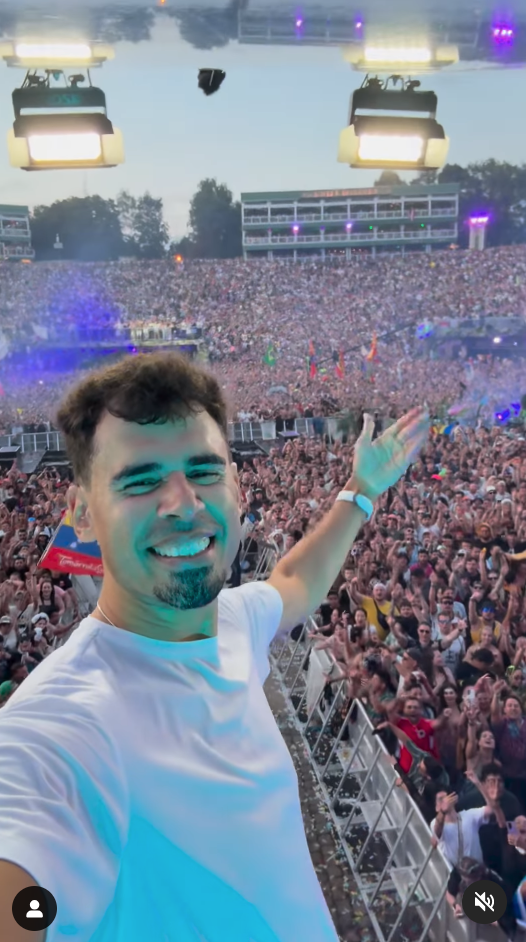AFROJACK has been around the block. He has 22 years of DJing and 25 years of producing music under his belt. Yet he can still look back and remember the feeling of getting on stage for the first time and having reality play out like a movie.
Scratch that. From the outside, AFROJACK’s life seems too dreamy to work as a feature film. The DJ and GRAMMY award-winning producer has long been considered one of the most sought-after and innovative artists in dance music, being one of the first DJs to secure a Las Vegas residency over a decade ago and getting placed on Forbes “30 Under 30” list. Throughout his two-decades-long career, he has traveled all over the world to play on the most coveted stages of dance music – most notably Tomorrowland, ULTRA, and EDC Las Vegas – and has lent his production skills to tracks and co-created major hits for artists like Beyoncé, Will.i.am, Lil Jon, David Guetta, and Pitbull.
Following the 2011 generational smash “Give Me Everything,” AFROJACK once again reunited with Pitbull and NE-YO to deliver a 13-years-in-the-making summer hit for 2024, “2 The Moon.” The new track instantly takes flight as a classic Pitbull banger, while AFROJACK lays down his signature production with tropical grooves punctuated by NE-YO’s intoxicating hook.
To commemorate this long-anticipated reunion between the three powerhouse artists, we caught up with AFROJACK to talk about the creative process behind this new 2024 summer anthem, his WALL Recordings headquarters, mitigating burnout, his travel essentials, and more.
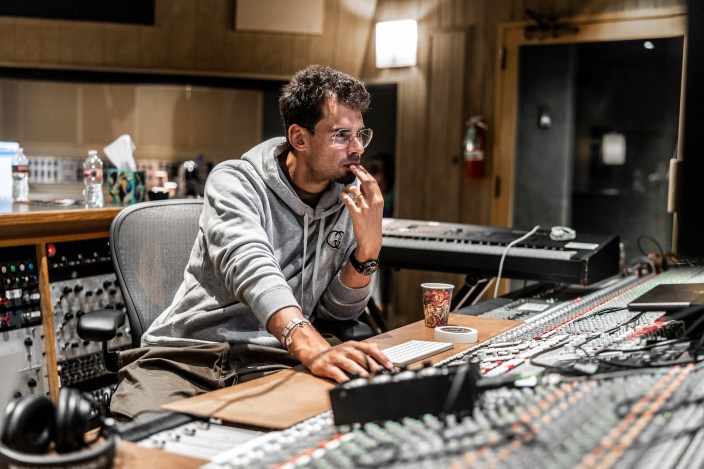
It’s been 13 years since you released “Give Me Everything” with Pitbull and NE-YO, what sparked the long-awaited reunion with the new single, “2 The Moon”?
Pitbull started a new tour and they said, “Yo, let’s finally do this record.” A lot has changed in these 13 years, of course, for me personally, because back then my career was just getting started and I was learning everything about the music industry. Back then when we put out the record, it was like you make it, you send it out to radio, and then from there on it starts to live.
Now there is Spotify, TikTok, and all these social media outlets that really influence the perceived success of a record. I remember back then when the record went high up in Billboard, that was a measure of success. Now, no one actually knows how to define what is a successful hit record. For me, the only thing I care about right now is just making fun music and making music that brings people together.
What was the creative process behind “2 The Moon” and was there always a plan to release a reunion single?
No, but of course you continue to work with the people you have fun working with, so we had some things laying around. I have a few other records with NE-YO laying around still! Everyone is not necessarily focused on just releasing a song because 100K songs get uploaded to Spotify every day. It’s crazy. So even if you are one of our monthly listeners, sometimes one single doesn’t get to the listener anymore. Fans want a story with every song. These days we get so spoiled through social media by always getting a story with a song. It’s amazing that you can’t get away with faking it anymore. Your music needs to be heartfelt and the story needs to be right.
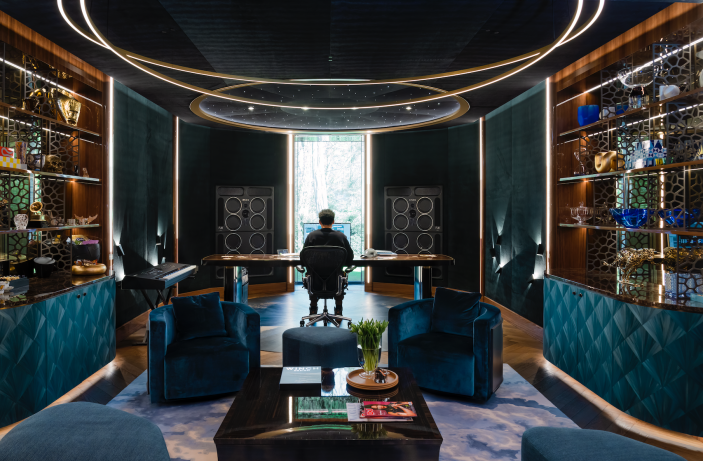
How do you personally define success with your music?
If the song is getting played in my friend circle and the dance music culture, that’s very important to me personally, and it’s a marker for success. I think for a lot of people it’s the numbers, tracking the streams, skip rate, and chart position. For me, if my friends know about it and think it’s cool, then it’s a success.
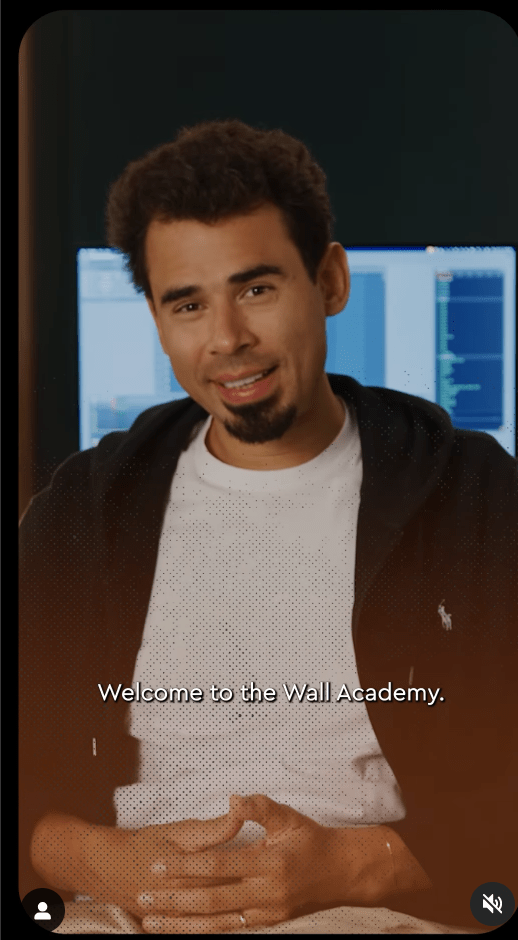
You’re coming fresh off the stage from ULTRA Europe. How do you mitigate the effects of burnout and jet lag while traveling?
You deal with it. You do what you have to. You try to pay attention. I used to drink a lot, but I really noticed that in order to keep the longevity and to keep yourself fresh, drinking less makes it a lot easier. You get better sleep, you stay fresher, and have more time to make music and focus. The way I look at it is if I go to a psychologist and they give me the definition of having burnout, then it makes it real. But as long as I don’t go and I just continue working, my physical or mental situation isn’t subject to external definition, which then allows me to define how I’m feeling day by day.
So I try to stay fresh. I try to be healthy. I try to play some PlayStation or some video games. If I’m feeling stressed or I feel like I need a breather, I go on vacation with my wife a few days here and there in between work. I listen to my feelings and emotions, and if it’s too much, I might do a little bit less of a great performance, but I at least know my limits so I don’t overwork myself.
This is a balance because I also know if you push yourself to the fullest, to the maximum, you will burn out. I try to read the people around me. I try to have the people around me be honest and transparent. I think this is very important to have transparent people around you, to tell you if you’re being unreasonable and you’re super high strung and stressed state. This is also a part of what we teach with the academy.
So when you are traveling, what are some of your travel essentials that you always travel with that help you stay centered and happy on the road?
I think my number one thing is my laptop. I use my laptop to make music, but I also use my laptop to play video games. So it’s the perfect combination. I love [playing] Final Fantasy. I grew up with Final Fantasy, so I always play that. I used to play Call of Duty a lot, but that became a little bit too much. It makes you think you’re doing something very efficient but you’re actually just throwing away a lot of time. I play League of Legends sometimes, any of the “old” games. Sometimes I play Sonic the Hedgehog or Mega Man.
I think the second thing which really streamlined my travel over the last years, I created a checklist. I read The Checklist Manifesto and it showed how in hospitals and with airplanes that by having a checklist, it can change the error ratio from 5% to 0%. So now I have a little checklist that includes my passports, my wallet, and all the important things. Since I started using this checklist, I never lose anything. I never forget anything in a hotel.
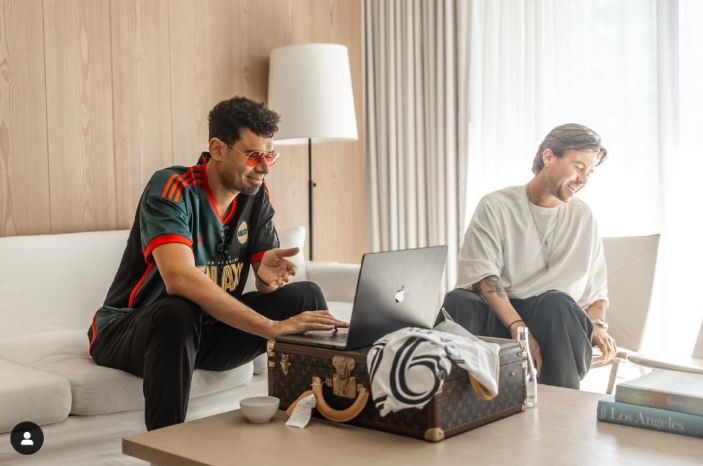
You also travel quite frequently with your “vacation puppy” Leia. Is she part of the checklist?
When my wife [Elettra Lamborghini] and I go on vacation together, she always comes. So I guess you can say she is part of the checklist. She’s been to Miami, Marbella, Ibiza, basically everywhere. My wife tours as well, so Leia comes with me or she comes with her, but she’s never alone. She’s our mascot. She sleeps with us, she lives with us, and we even trained her to use the shower as a toilet since she’s a super small dog. Very convenient for hotel rooms.
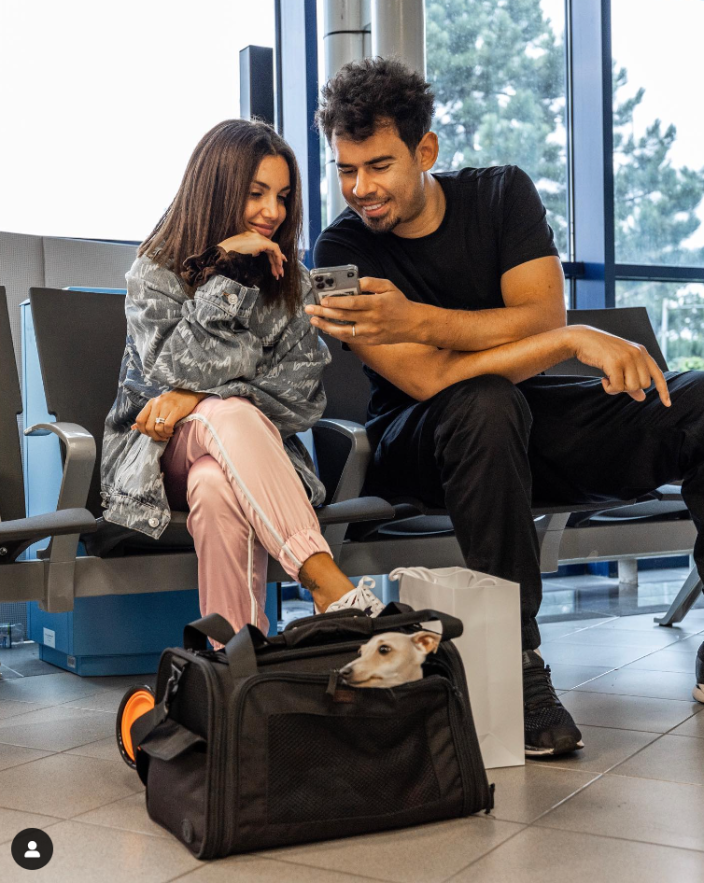
It has been about two years since you opened the doors to your WALL Recordings headquarters in Belgium. What prompted you to open this up?
So I started my artist development company around 2015 when I split with my management at that time. I had a place in Holland for a while then later moved [WALL Recordings] to Belgium about two years ago. Recently, I started the Wall Pro Academy with Tomorrowland which features 40 hours of content of me explaining everything I know about the music industry, from music production across genres, music management, legalities, taxes, and financials. I’m trying to level out the playing field for young, upcoming producers. A lot of producers when they first start out go to YouTube to find tutorials, but it’s only the basics of how to make music. It’s important to teach people how to successfully make music, how to successfully be a DJ, how to get gigs, how to get songs that perform, and how to create a fan base.
Our studios in Belgium are a multiplication of that. If someone can solely focus on their passion for a year and see what comes out of it, it’s usually success. We have a few artists that are being picked up by labels, by DJs getting supported internationally, some DJs performing internationally. Basically, I see it as a dream factory. People come with dreams and we turn them into a tangible thing.
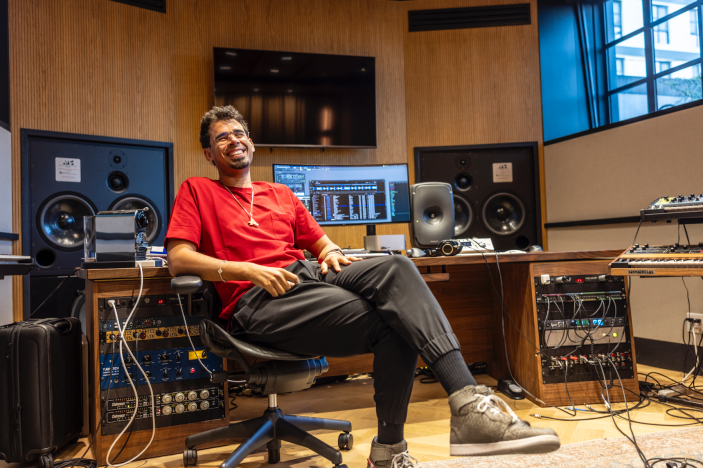
I love that you have that terminology for it, the Dream Factory. Would you say that you are out scouting these artists or are people coming to you and asking to travel out to the studio?
There are thousands of people always wanting to come. In the beginning, I was scouting actively all the time. And then a few years ago, I started doing live streams and doing demo listening and giving feedback. And through that, I’ve accidentally stumbled across a lot of new talent. To me, it’s not how far are you in your journey but it’s how fast do you learn if someone gives you critique or gives you feedback. How fast can you develop that into making a better song or making better music?
I see artists that are making big room EDM for festivals, and then we have a conversation on the live stream and tell them to try some tech house. Three weeks later, this kid who never made a tech house song suddenly gets his record released on a big tech house label, gets supported all over the world by the biggest tech house DJs, and is now starting to get booking requests. Things happen fast just by changing your mindset. It has nothing to do with skill. It has only to do with changing the strategy of what it is that you’re doing with your music career.
There’s a lot of people that have success, but they cannot create a sustainable career out of it. I think that also has to do with knowledge and experience of how to handle success. No one is below you in the food chain, we’re all on the same level. It’s an even playing field, and especially now in the days of transparency of social media, you won’t get away with bullshitting anyone. Everyone always says fake it until you make it, and that it doesn’t really work anymore. It’s like people smell the fake a mile away.
It’s not just for the music community, it’s also for myself. I’ve been doing this a long time. I’ve been DJing for 22 years and producing music for 25 years, and I noticed that getting on stage continuously in front of 10,000, 20,000, or even 100,000 people is always fun, but the first time is like a movie. Giving the movie experience to young people is worth it way more than getting on the stage again myself. To be able to give someone that experience of changing their perception of what’s possible with reality, that’s worth so much more. To really bring someone else on stage and change their life or change their perspective of life, that’s an experience money cannot buy. It’s special.
